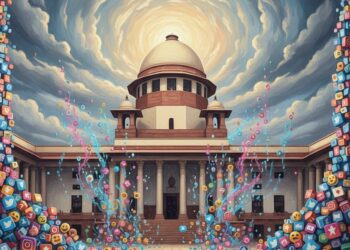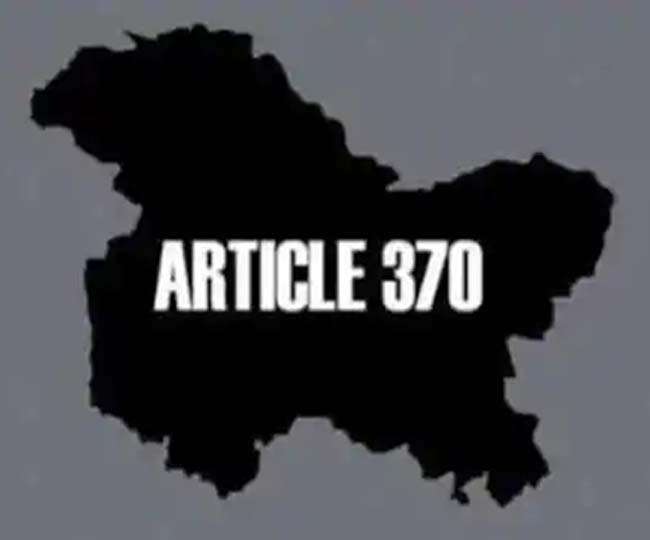“Why Justice Sen did not see the light earlier and submit his resignation well before the Rajya Sabha voted overwhelmingly in favour of his impeachment, only he can explain,” The Hindu Editorial (Sen and Sensibility, September 6, 2011) wondered. The answer is quite simple. Justice Sen perhaps never thought that the motion for his removal would pass through the Council of States (Rajya Sabha) the way it did – like a red-hot knife through soft, yielding butter. Not his fault, really. He understood the nature of the arduous, removal procedure right, but misread the times. And, no – to diffuse the flattering, self-congratulatory tone – these are not particularly earth-shaking, epochal times that we live in that could have made Justice Sen’s impeachment inevitable. Just that one simple, unrelenting Gandhian called Anna Hazare had stepped on the wagging tail of the corruption monster, and the government didn’t know whether to bite the foot or whine its submission to the popular will that was so unusually expressed that it almost sounded undemocratic. The government was in the docks, and the popular dissatisfaction and disaffection on account of rising corruption had never been this clearly and forcefully expressed even before. When the politicians thought that Indians had accepted corruption as a ‘way of life’, there was a massive backlash, which they had never expected and were completely unprepared to deal with.
All fingers were pointed at the politicians in general and at the UPA government in particular, which was writhing under a massive pile of corruption-related investigations and court cases. The fingers were just too many to ignore, and they had nobody to point their own fingers at. All politicians, our esteemed ‘elected representative’ and the aspiring-to-be-elected, are very well aware that when it comes to corruption and corrupting, just nobody is clean. A truly honest politician – one in a million, of course – is not corrupt himself, but he still tolerates and ignores corrupt political practices all the time and is thus guilty by virtue of his silence. A watchdog of the Lokpal kind is the last thing that they wanted on their necks. So, the solidarity among all politicians against such an institution was quite natural, but in face of mounting public ire, there was frustratingly little that they could do about it. Anna was a virtually unsolvable problem. And the superior courts, particularly the Supreme Court, were adding to their woes by pushing the government to bring the corrupt to justice and the black money back home. In walks a defiant Justice Sen, after having been found guilty by his own kind. The much needed punch bag was found. He belonged to those quarters that were most irksome to the ruling elite, for Justice Sen’s robed brethren asked too many questions, prodded far too often for comfort, and leashed and lashed as needed. He was the much desired pound of flesh, served fresh and warm. Snarling ferociously, they leapt forth to tear him apart, and did. But, unfortunately, the searing criticism did not stick to Justice Sen alone, and a time came when it was difficult to tell if it was Justice Sen in the docks or the entire judiciary. The resentment against judicial prodding and the proactive roles that the Indian Judiciary plays in checking excesses and misuse of power was writ large. Somebody was asking uncomfortable questions a little too often. Somebody had been telling them to keep the air clean, to demolish the illegal structures, to let the poor consume the grains that were beginning to rot, to let investigations into scams be impartial, to bring the black money back home, to have the scamsters punished, and so many other such wrongs that this ‘somebody’ could not have ignored without being in breach of its own constitutional duty.
The resentment surfaced most clearly when BJP’s Mr. Ravi Shankar Prasad remarked that the Judiciary was “taking away power by appointing committees — MCD should work like this; this committee should work like this. Sorry, Me Lords, this is not your function. May be, the authority is not functioning properly, but for that you are not the authority. Let the democratic process, the rule of the law and parliamentary accountability set right the course.”
Mr. Arun Jaitley, too, brought up the issue of judicial overreach saying, “Separation of powers requires that every institution works in its own spheres. And if every institution works in its own spheres, it has to lay down the lakshman rekha of its own jurisdiction..And I must candidly confess that this attempt to encroach upon the lakshman rekha is neither coming from governments of the day in the Centre or the States nor is it coming from the Executive or the Legislature. Some serious sidestepping is coming from the judicial institution itself.”
Remember the Supreme Court initiated Sealing Drive not too long ago, Mr. Prasad? The illegal structures that had mushroomed due to rampant corruption within the MCD were ordered to be demolished, and the MCD and the Delhi Government sided with the violators, and not the ‘Rule of Law’. When the government departments are told to perform their duties, it is precisely the ‘Rule of Law’ that is upheld. The Courts neither do try, nor have tried, overhauling the system for ‘better governance’. The approach has always been curative. And why the need for the cure arose in the first is a question that must be answered by those who sing the song of ‘Separation of Powers’ and ‘Parliamentary Accountability’ as though they were powers without duties. What is being called ‘usurpation of power’ is ‘owning additional responsibility’.
 Mr. Ram Jethmalani, who shares the distinction of being a noted lawyer and a BJP MP with Mr. Jaitley and Mr. Prasad, had clearly disagreed with both of his ‘colleagues’ when some time back he had said in the same context, “It would be overreach if we had an honest government. Given the way things are, if the court avoids that overreach they would be held guilty for dereliction of duty.” [Who will judge the Judges by Damayanti Datta, India Today, August 20, 2011]
Mr. Ram Jethmalani, who shares the distinction of being a noted lawyer and a BJP MP with Mr. Jaitley and Mr. Prasad, had clearly disagreed with both of his ‘colleagues’ when some time back he had said in the same context, “It would be overreach if we had an honest government. Given the way things are, if the court avoids that overreach they would be held guilty for dereliction of duty.” [Who will judge the Judges by Damayanti Datta, India Today, August 20, 2011]
That said, why is Parliament talking of ‘judicial overreach’ when what is under discussion is a motion for the removal of a High Court judge? The motion reached Parliament after, as per the constitutional procedure, the Inquire Committee constituted by former CJI, Justice K.G. Balakrishnan and comprising of one Supreme Court Judge (Justice B Sudershan Reddy), one High Court Judge (Justice Mukul Mudgal) and a noted Jurist (Mr. Fali S. Nariman) had found Justice Sen guilty, and had recommended his removal. The judiciary had already done its bit in taking the black sheep out. The only relevant question was whether there was still something to save the day for Justice Sen. Therefore, Parliament could either accept or reject the recommendation of the Inquiry Committee. The whole talk of judicial overreach was completely out of place, and equally irrelevant was the issue of the appointment of judges.
Removal of a judge is constitutional measure aimed at ‘course correction’. It is a cure. And the existence of a corrective measure presupposes the possibility of an error. Since error of judgment can always creep in regardless of what system of appointment we follow makes the question of appointment irrelevant in a motion for removal because precautionary measures at the time of appointment pre-emptive while removal is curative. If pre-emptive measures could be made flawless, we wouldn’t need curative mechanism at all.
Granted, to borrow Mr. Jaitley’s words, “The system of judges alone appointing judges must now change. India needs a National Judicial Commission to appoint judges.” But Vigilance Commissioners don’t appoint Vigilance Commissioners. How could PJ Thomas be appointed when he had been chargesheeted in a corruption case? UPSC examination for the selection of IAS, IPS and other officers is by far the fairest and cleanest exam. So, is the bureaucracy and police administration clean of corruption even at the highest level? Recruitment to the armed forces, too, is through a fair, transparent and rigorous process involving several tiers of test for officer ranks. So, Sukhna Land Scandal, Adarsh Land Scam and Kargil Coffin scam must sound alien to us, but they don’t. No recruitment process, howsoever fair, transparent and rigorous, can guarantee honesty and clean conscience of the selected. Therefore, if removal on proven corruption charges is the issue, the talk of recruitment process is wholly irrelevant.
Mr. Jaitley’s calling the Collegium system “a system of sharing the spoils”, and adding, “When the High Courts recommend, members of the collegium share the spoils”, is also completely irrelevant, misplaced and uncalled for. Furthermore, the language of ‘spoils’ casts unsubstantiated and unsubstantiable aspersions on the integrity of the judges thereby undermining the authority of the Judiciary in the eyes of the people.
Even more irrelevant was Mr. Jaitley’s observation that “Courts cannot say that this is neoliberalism which is creating problems. Courts cannot have an ideology.” What was it? A ‘Special Church Hour for the Judiciary’ with Mr. Jaitley at the pulpit?
Judges swear allegiance to the Constitution, first and foremost. To the constitutional courts the laws are not sacrosanct; the Constitution is. Therefore, in upholding the Constitution in letter and spirit, they must also uphold and protect Constitutional ideologies. And constitutions are not ideologically neutral. Words like ‘Secular’, ‘Socialist’ and ‘Democratic’ find prominent place within the Preamble, and ‘Secularism’, ‘Socialism’ and ‘Democracy’ are indeed ‘ideologies’, which the Courts are dutybound to abide by. Liberalism, pushed to extremes, can easily run counter to ‘socialist’ values, to which the constitutional courts can raise a constitutionally valid objection.
Quite evidently, the motion for the removal of a judge became an excuse to crucify the Judiciary for performing its constitutional functions in a clear case of ‘Parliamentary Overreach’.
Also, in case of both Justice V. Ramaswami and Justice Sen, the Judiciary did all that it could do to secure the Removal. Thus, no blame lies at the doorsteps of the Judiciary making all criticism in this regard excessive.
Originally written for and published as Cover Story in LAWYERS UPDATE [October 2011 Issue; Vol. XVII, Part 9]





